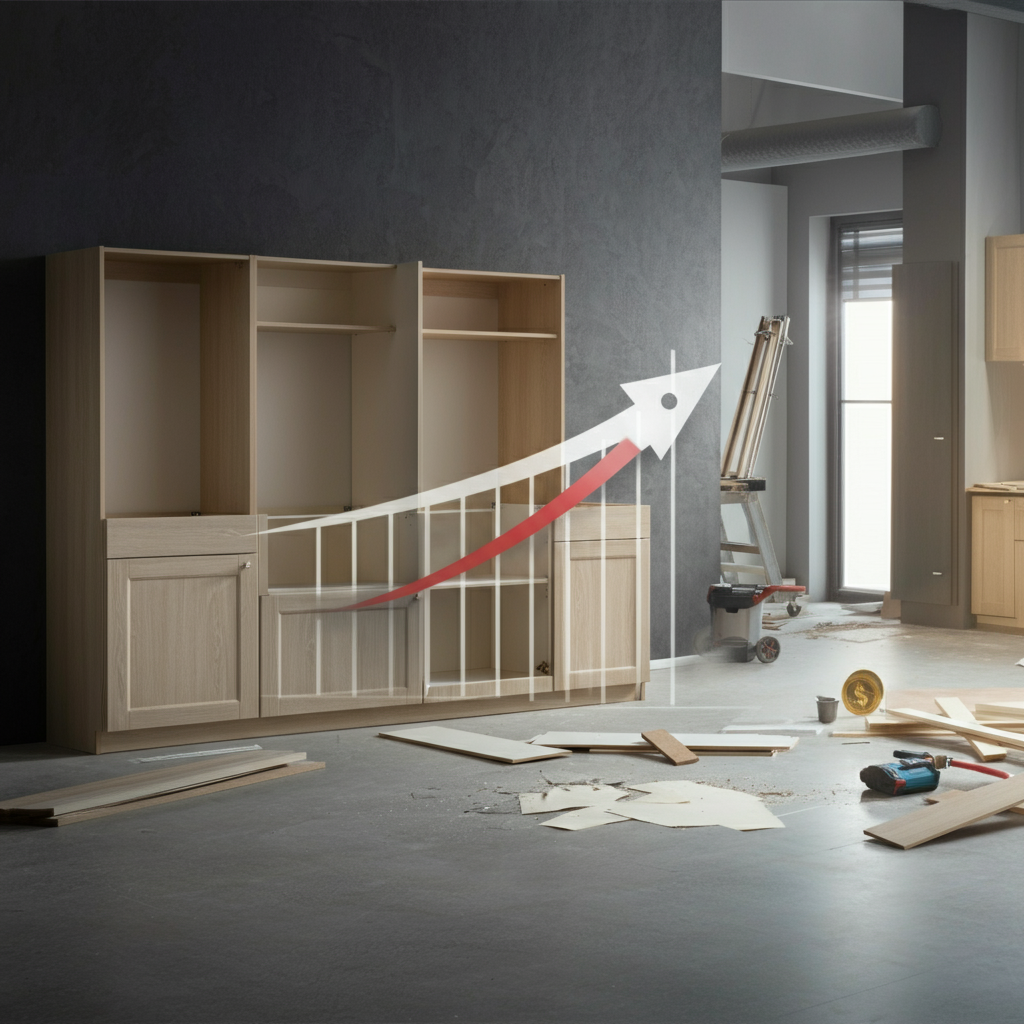The kitchen cabinet industry is feeling the pressure of rising tariffs on imported goods, but many companies see this as an opportunity for growth in the long run. As the U.S. government imposes new tariffs on foreign-made products, some kitchen cabinet companies are betting on local manufacturing to help them navigate these changes. While the immediate impact of higher costs and adjustments to supply chains is undeniable, many manufacturers believe the long-term benefits will outweigh the short-term challenges.
The increase in tariffs has stirred a mix of uncertainty and optimism within the kitchen cabinet market. For some companies, the higher cost of imported materials and finished products could limit their ability to compete with domestic manufacturers. However, for others, this could be a chance to step up production and showcase American craftsmanship. The hope is that the shift in focus towards domestic manufacturing will ultimately help these companies weather the storm and thrive as the U.S. economy adapts to these new trade policies.
Why the US Tariffs Matter to Kitchen Cabinet Manufacturers
The U.S. government has been ramping up tariffs on a variety of imported goods, including wood, plywood, and hardware used in kitchen cabinetry. These materials, often sourced from countries like China and Canada, are integral to the production of high-quality kitchen cabinets. With the new tariffs in place, companies that rely heavily on imported materials are seeing their costs rise, leading to price hikes for consumers and tighter profit margins for manufacturers.
For some kitchen cabinet companies, this change could be seen as a disadvantage. The immediate effect of higher costs could result in higher prices for consumers, which could potentially drive some customers to seek cheaper alternatives or delay their remodeling projects altogether. Additionally, companies with international supply chains might find it challenging to maintain product availability in the face of disruptions and price fluctuations.
However, not all kitchen cabinet companies view these tariffs as a setback. Many see the move as a way to encourage more domestic production and reduce the U.S. economy’s reliance on foreign goods. This could ultimately lead to a more robust and self-sufficient manufacturing sector, with companies capitalizing on the opportunity to increase production in the United States. In the long term, this could result in better quality control, faster production timelines, and a stronger competitive edge in the market.
The Shift Toward Domestic Manufacturing
The uncertainty surrounding international trade agreements has led some kitchen cabinet companies to rethink their business models. In response to new tariffs, a growing number of manufacturers are bringing production back to the U.S. This shift toward domestic manufacturing is seen as a way to mitigate the risks associated with fluctuating tariffs and global supply chain disruptions.
By producing cabinets domestically, companies can potentially avoid many of the tariff-related price increases. The hope is that these companies can pass on the savings to consumers, who may be more inclined to purchase locally made products. Additionally, producing cabinets in the U.S. may reduce shipping costs and provide quicker delivery times, which could be a major selling point for consumers looking for faster results.
For some manufacturers, the move toward local production is already paying off. They are finding that American-made cabinets are in high demand, with customers willing to pay a premium for products that are seen as more sustainable and made with higher standards. This shift is also seen as a way to revitalize the manufacturing sector in the U.S., providing job opportunities and promoting economic growth within the industry.
The Long-Term Impact on the Kitchen Cabinet Industry
Looking ahead, kitchen cabinet companies are hopeful that the U.S. tariffs will ultimately lead to more stable and profitable operations in the long run. While the immediate impact of higher tariffs on imported materials may be difficult for some businesses to absorb, the potential for growth in domestic production is a compelling reason to stay optimistic. Companies that can adapt to these new trade policies by investing in local manufacturing and sourcing will likely have a significant edge in the competitive landscape.
Furthermore, as consumers become more conscious of where their products are made, there may be a growing preference for domestically produced kitchen cabinets. This could be a boon for companies that prioritize quality and sustainability in their manufacturing processes. Additionally, the focus on local production could lead to innovation and improvements in materials and design, further boosting the appeal of U.S.-made cabinets.
In conclusion, while the short-term effects of U.S. tariffs on kitchen cabinet companies are still unfolding, the long-term prospects are promising. As manufacturers adjust to new tariffs and look for ways to strengthen domestic production, the kitchen cabinet industry has the potential to experience significant growth. With the right strategies in place, companies that embrace local manufacturing and innovation will be well-positioned to succeed in a post-tariff market.


